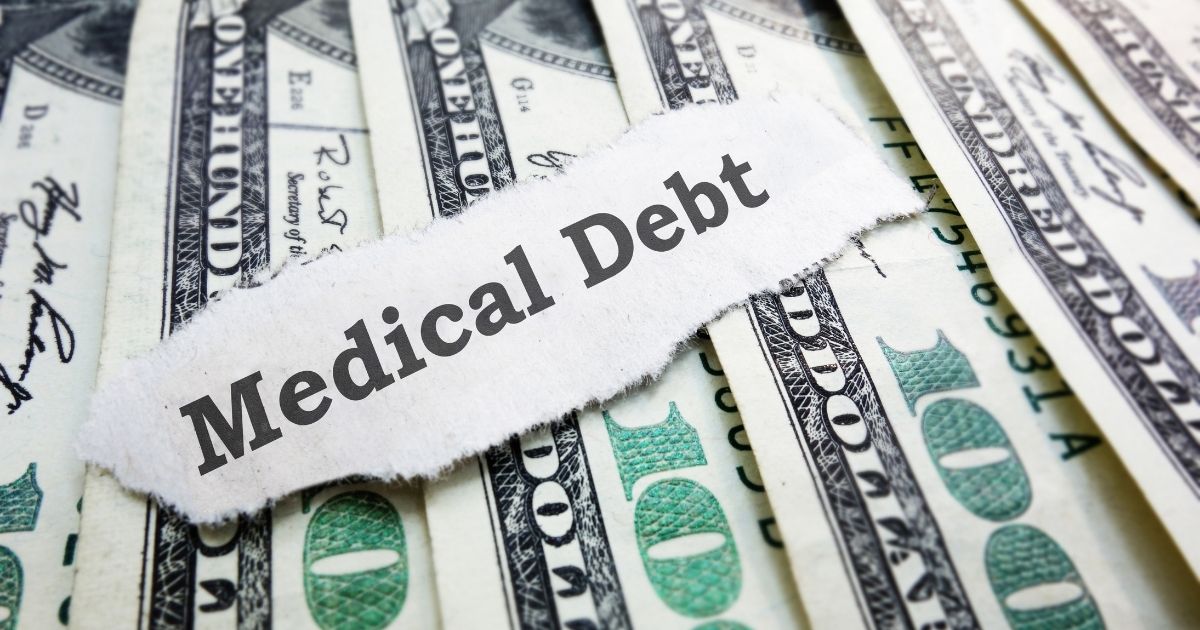Beginning this summer, much of your medical debt could be removed from your credit report. In March 2022, the three biggest credit reporting agencies, Equifax, Experian, and TransUnion, announced changes to how they report medical debt which will amount to removing nearly 70 percent of medical debt in collections. The Consumer Financial Protection Bureau (CFPB) estimates that this amounts to tens of billions in of medical debt from more than 43 million credit reports.
Starting on July 1, 2022, medical debt that has been paid will no longer be included on credit reports from Equifax, Experian, and TransUnion, regardless of how long it has been on your report. Prior to this change, medical debt could stay on a consumer’s credit report for up to seven years. Additionally, the three credit bureaus are increasing the length of time before medical debt in collections will appear on your credit reports. Since 2017, medical debt has been showing up on credit reports after six months; but that cushion will soon be extended to a year. This will give you extra time to negotiate with providers or collectors to find a payment solution. Lastly, sometime in the first half of 2023, these credit reporting agencies will no longer include medical debt in collections under $500 on consumers’ credit reports.
Advocates at the Consumer Federation of America applaud the efforts of the Consumer Financial Protection Bureau (CFPB) in urging credit reporting agencies to re-evaluate their use of medical debt on consumer credit reports. Still, their Financial Services Outreach Manager pointed out that many consumers will continue to have medical debt on their credit reports, which can negatively impact their ability to secure housing, loans, and even employment.
In particular, it was noted that low-income consumers, young adults, Black consumers, and Hispanic consumers are more likely to be underinsured or uninsured, and that no consumer should face lasting repercussions from illness. Even though most people with medical debt owe less than $500 per medical bill, these amounts all add up. As of June 2021, consumers’ credit reports reflected $88 billion in medical debt, according to the CFRB.
Many hear the term ‘consumer debt’ and immediately think of overspending, living beyond one’s means, or credit card debt. The reality is that medical debt is a major component of consumer debt, and an overwhelming concern for many Americans. One in three consumers has past due medical bills, according to the National Consumer Law Center. Medical debt is also the leading cause of bankruptcy, with 62 percent of bankruptcies related to medical debt. Further, approximately 23 million Americans, nearly one in ten adults, owe at least $250 in medical debt.
Credit experts feel that the changes being made by Equinox, Experian, and TransUnion are long overdue for several reasons. One reason is that because medical debt is so often an unexpected financial burden, it is not an actual reflection of a person’s willingness or ability to pay back a debt. Frequently, massive medical debts are a result of unforeseen medical emergencies. Medical debt has spiked even more during the ongoing COVID-19 pandemic. These unexpected costs can be difficult to pay off, and often the debt goes to collection agencies.
Medical debt can also be confusing, and consumers face an uphill battle trying to remove inaccurate information from their credit reports. Errors in medical billing can make matters complicated. Medical bills frequently involve coding errors, which should have nothing to do with the consumer’s financial responsibility but unfortunately affects it. Credit experts opined that the current credit reporting system has pressured patients and their families to succumb to paying medical bills that they have doubts about.
Also, it can be difficult for consumers to know what costs they are responsible for and what will be eventually paid by their insurance providers, if they have coverage. Sometimes, by the time consumers realize they are responsible for certain medical bills the bills are past due and on the way to collections.
Although the upcoming changes being made by the three credit reporting agencies are welcome and positive, they do not alleviate worries for all of American consumers. While this announcement is good news, remember that it does not eliminate medical debt, and it does not eliminate medical debt on your credit reports. No matter how much you owe in medical debt, the removal of medical debt from your credit report does not remove your responsibility to pay that debt.
There are several things you can do to manage your medical debt, including:
- Request an itemized bill. If you were not expecting a medical bill for certain services or if it was higher than you expected, ask the billing department for an itemized statement. This will also show all the billing codes for the care you received.
- Inquire about payment options. Call the hospital or medical provider to ask about all payment and settlement options. Most are willing to negotiate and discuss medical bills before sending them to collections. It could be a lump sum payment, a payment plan, or even a cash discount option, which hospitals sometimes take.
- Seek financial assistance. There are independent advocates and government agencies that work with individuals to help manage medical bills and pay off medical debt. Many hospitals employ advocates who help patients with financial difficulty, and have what are known as Charity Care programs. You should also ask your medical provider’s billing department if there is a financial aid program for patients struggling to pay their medical bills. Lastly, if you qualify for Medicaid you may also be eligible for assistance with retroactive medical bills as well.
- Review bills that have already gone to collections. If you have medical debt that has already gone to collections, check to make sure there were no extra fees added to your total due by the debt collector. To review the accuracy of your original medical bill, you may need to consult documents you signed at the hospital, health care facility, or provider’s office.
Pennsylvania Credit Report Lawyers at East End Trial Group Assist Clients by Disputing Inaccurate Credit Report Information
Credit reports have a direct impact on your ability to secure a loan, line of credit, housing, and even employment. When the information is incorrect, the damage can be extensive. Our experienced Pennsylvania credit report lawyers at East End Trial Group can help. Call us at 412-312-4745 or contact us online for a free consultation. Located in Pittsburgh, we serve clients throughout Pennsylvania.

 Call Us Today 412-223-5740
Call Us Today 412-223-5740
